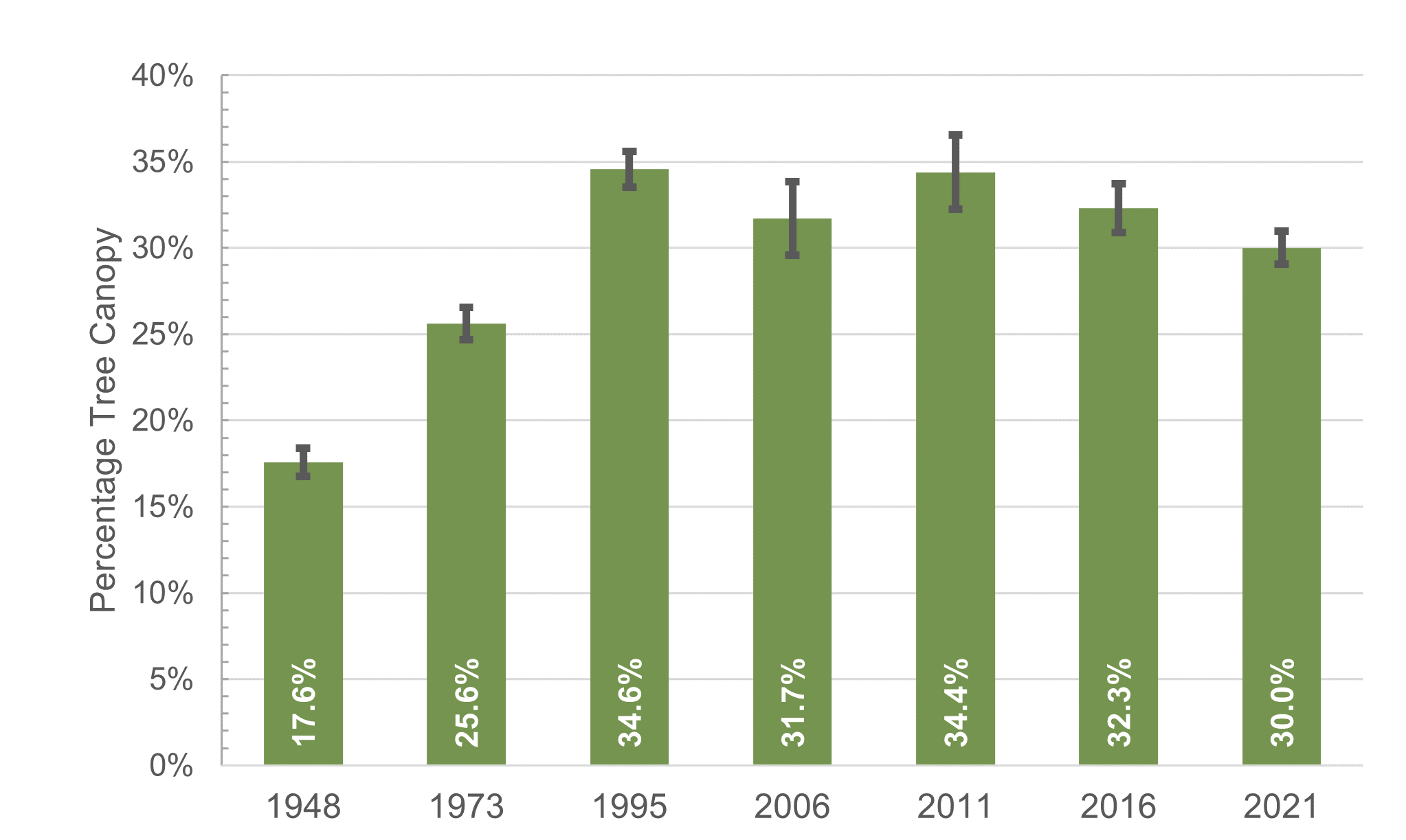Mayor Jane Castor today called on Tampa to renew and re-energize its commitment to maintaining a word class tree canopy, setting a goal of planting 30,000 new trees by 2030.
“I am enlisting everyone - city government, individuals, businesses, neighborhood groups for this crucial mission, because Tampa’s tree canopy needs help. We need to act quickly and decisively to replenish our invaluable urban forest, which has decreased over the past decade,” said Mayor Jane Castor. “Our ambitious multi-part roadmap includes the planting of trees on both private property and in public spaces.”
The mayor’s announcement comes as a new, thorough assessment of Tampa’s citywide tree canopy coverage dropped by 2.3 percent since 2016. The report providing information about the size, composition, health, and distribution of Tampa’s trees found canopy coverage of 30 percent of the city’s total land area, its lowest point in 26 years. Tampa has been a nationally recognized Tree City for 41 years, and its tree ordinance requires an assessment of the tree canopy and urban forest every five years, with today’s results reflecting data collected in 2021.
Mayor Castor’s tree initiative includes several elements:
- Expand the city’s Tree-mendous Tampa program to allow people to receive up to five free trees, up from two.
- Better utilize the city’s tree trust funds and work with the city council to put more resources into maintaining the existing tree canopy.
- Enlist front line workers in stormwater, mobility, water and other city departments to identify key opportunities for trees and to make planting trees a higher priority.
- Continue the Mayor’s Tree Giveaway, providing residents with 1,000 free trees annually.
- Aggressively enforce existing laws and maximize fines for illegal tree destruction where appropriate.
- Launch a new voucher program to encourage and help people buy trees from local nurseries.
- Support quarterly neighborhood-based tree planting projects.
- Implement a Neighborhood Tree Stewardship program to educate residents on tree care and the urban forest
Mayor Castor said the 30,000 new trees will be a mix of shade, native, and specialty trees, and that maintaining and keeping healthy the existing canopy is as important as planting new trees.

“The value of trees in Tampa is almost immeasurable - the benefits for shade, flood prevention, water quality, air, and aesthetics - all make trees a critical city asset,” said Whit Remer, City of Tampa's Sustainability & Resiliency Officer. “While there is no one reason for the canopy decrease, new state laws restricting the ability to regulate trees on private property, development, and the age of canopy all played a part of the decline. It’s our job to mitigate these losses in every manner possible"
The new tree canopy report includes several new elements, including an online survey and in-person interviews focused on residents’ experiences and values of trees, an urban heat map, and environmental equity analysis.
Key findings show:
- Tampa’s municipal forest consists of 10.4 million trees across 259 woody plant species
- Loss of tree canopy since 2011 is over 3,300 acres - an area roughly the size of 3.7 USF campuses
- Potential tree planting locations within the City of Tampa is more than 15,000 acres of land
- A map of urban heat, based on summertime land surface temperatures, found that areas with tree canopy are nearly 6°F cooler than areas with more impervious surfaces.
- Survey results show that having “a lot of trees in the city” is either “extremely important” (70.4%) or “very important” (21.6%), suggesting that 92% of survey participants highly value the trees in the City.
For more information and to apply, visit the City of Tampa's website at tampa.gov/trees.
